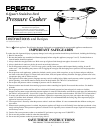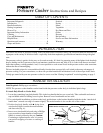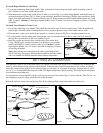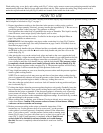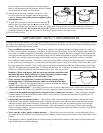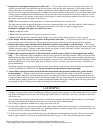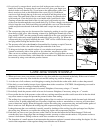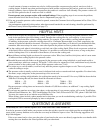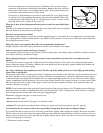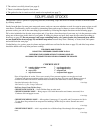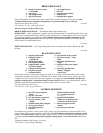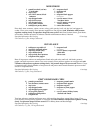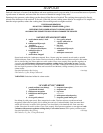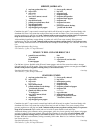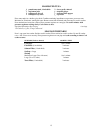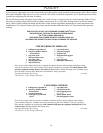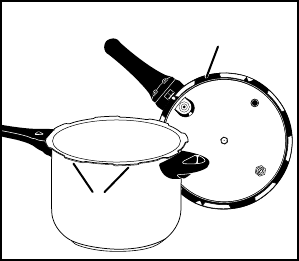
9
If after browning meat or poultry the cover is difcult to close, it may be due to
expansion of the pressure cooker body from heating. Remove the cover and allow
the pressure cooker body to cool slightly and try again. Do not place the pressure
cooker back on the burner until it is fully closed.
If necessary, to help make the cover easier to open and close, a very light coating
of cooking oil may be applied to the sealing ring and to the underside of the lugs
on the pressure cooker body (Fig. R). Use a pastry brush, a piece of cloth, or your
ngertips and be sure to wipe off any excess oil.
What can be done if the food prepared in the pressure cooker has more liquid than
desired?
With the cover removed, simmer to evaporate the excess liquid. Next time you prepare
the same recipe, you may want to use less liquid.
How does one prevent overcooking?
Remember to begin timing as soon as the pressure regulator begins to rock gently. It is very important to accurately time
the cooking period. A Presto
kitchen timer is very helpful for this purpose. Also be sure to follow the recipe instructions
for cooling the pressure cooker.
What if the food is not completely done after the recommended cooking time?
Simply bring the cooker back up to pressure and cook the food a minute or two longer.
Can I use my pressure cooker on all types of ranges?
Your pressure cooker will work on gas, electric coil and ceramic glass (smoothtop) ranges. In addition, stainless steel pres-
sure cookers will work on induction ranges.
When cooking first begins, is it normal for steam to escape and moisture to form on the cover and between the
handles?
It is normal for steam to escape and a slight amount of moisture leakage to form on the cover and between the handles
when cooking rst begins. If leakage continues, the cover handle may not be properly aligned with the body handle and,
therefore, the cover lock cannot engage.
My cooker is making a loud, unpleasant sound. The blue cap in the middle of the cover is also lifting up and emitting
steam. What is causing this?
The pressure relief valve is a warning device that is designed to provide both visual (the blue cap lifts and steam comes out
the sides) and audio (a fast, steady release of steam, often times accompanied by a continuous unpleasant sound) signals
to indicate that the vent pipe has been blocked and is no longer regulating pressure. If you see and/or hear either of these
signals, immediately turn off the burner. Do not move the cooker. Instead, allow pressure to drop of its own accord. When
there is no pressure in the cooker (see #6, page 5), remove the pressure regulator from the cover, open the cooker, and
clean the vent pipe (see page 6).
NOTE: Do not operate the cooker again until you have replaced the pressure release valve. The high pressure which trig-
gered the release, may have contaminated the valve with food particles, which could prevent it from acting as a warning
and a backup pressure release valve if the vent pipe is plugged again.
Remember a plugged vent pipe is a result of user error.
• Never overll the cooker.
• Never cook the foods listed in #2, page 5 in a pressure cooker.
• Always follow the special procedures when cooking rice, grains, and dry beans and peas (see #11, page 6).
Is it normal for the air vent/cover lock to rise up partially and drop back down when cooking first begins?
It is possible that the air vent/cover lock will move up and down slightly when cooking rst begins. Do not be concerned.
The air vent/cover lock will remain in the up position once the cooker has sealed. However, if the air vent/cover lock con-
tinues to move up and down or rises partially, tap it lightly with the tip of a knife. If it does not rise once you have tapped
it, the following may be occurring:
1. The burner is not hot enough.
Apply
Cooking Oil
Here
Fig. R
Apply Cooking
Oil Here



